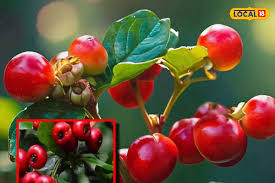Amla Juice First Thing in the Morning Health
Advantages: Amla, often referred to as Indian gooseberry, is a petite green
fruit celebrated in conventional Indian medicine for its myriad health
advantages. This wintertime fruit is a powerhouse of nutrients. It boasts high
concentrations of vitamin C, essential for enhancing the immune system and
combating infections. In addition to vitamin C, Amla is abundant in fiber,
calcium, iron, and various antioxidants such as flavonoids and tannins. This
distinct blend of nutrients positions Amla as an optimal choice for anyone
aiming to elevate their overall health. The fiber content in Amla promotes
digestion, while the antioxidants assist in detoxifying the body. There are
numerous ways to incorporate this remarkable fruit into your daily regimen;
however, consuming its juice on an empty stomach stands out as one of the best
methods.
Strengthens
Immunity
One of the primary reasons to appreciate Amla juice
is its ability to fortify your immune system. Rich in vitamin C, Amla acts as a
potent antioxidant that protects your body from infections and illnesses.
Consuming it on an empty stomach allows your body to better absorb the
nutrients, enhancing your immunity. This routine can prove particularly
beneficial during flu season, as it prepares you against possible illness.
Supports
Digestion
Amla juice is well-renowned for its digestive
benefits. It possesses dietary fiber that facilitates smooth digestion and
wards off constipation. Starting your morning with Amla juice activates your
digestive system, significantly aiding metabolism. It also regulates stomach
acids and alleviates acidity and indigestion, rendering it an excellent natural
solution for those desiring improved digestive health.
If glowing skin is your goal, Amla juice might be the
solution. The antioxidants found in Amla combat free radicals, decreasing signs
of aging and imparting a youthful appearance. Furthermore, the vitamin C in
Amla is crucial for collagen production, which is essential for skin
elasticity. Daily consumption of Amla juice not only nourishes your skin
internally but also helps attain that coveted natural glow, cherished by beauty
enthusiasts.
Aids in Weight
Reduction
Adding Amla juice to your morning routine can also
bolster your weight loss endeavors. Low in calories yet high in fiber, this
juice helps maintain a feeling of fullness for longer, reducing the likelihood
of overeating. Amla is also recognized for enhancing metabolism, allowing your
body to effectively burn calories. Beginning your day with Amla juice can
ignite your metabolism, making it easier to drop those persistent pounds.
Boosts Liver
Health
Amla juice provides yet another remarkable advantage:
it promotes liver wellness. The antioxidants in Amla assist in detoxifying the
liver and enhancing its function, which is crucial for processing nutrients and
eliminating toxins. A healthy liver significantly influences overall
well-being, as it plays a vital role in digestion and metabolism. Consuming
Amla juice in the morning gives your liver the support it requires for optimal
performance.
Optimal Way to
Consume Amla Juice on an Empty Stomach
To reap the benefits of Amla
juice, it is vital to incorporate it into your routine correctly. For optimal
results, consume it fresh, preferably made with organic Amla. Mix it with water
or add a teaspoon of honey for a hint of sweetness. A small glass (approximately
30-50 ml) first thing in the morning ensures effective nutrient absorption,
setting an invigorating tone for your day.










